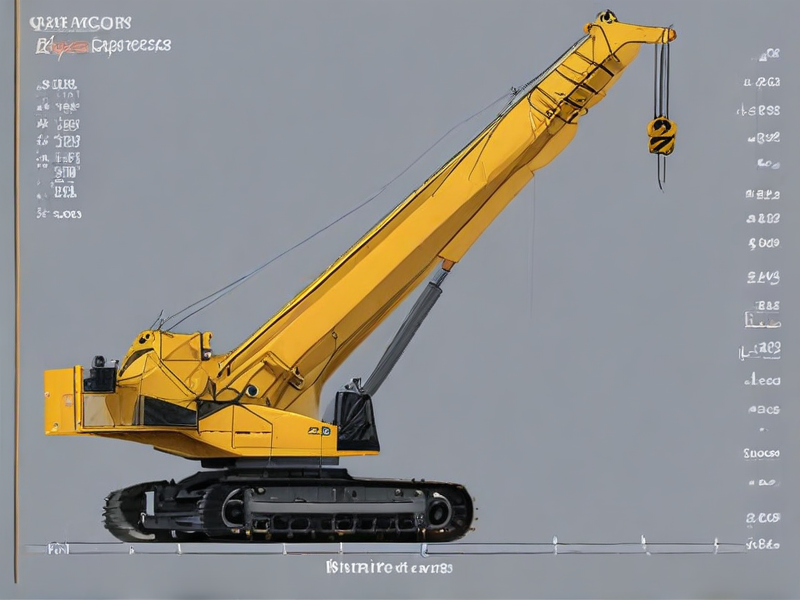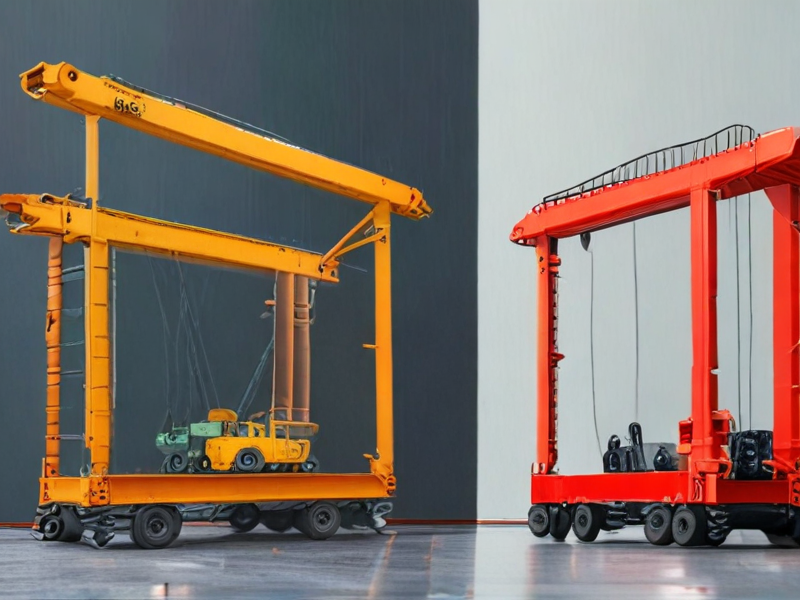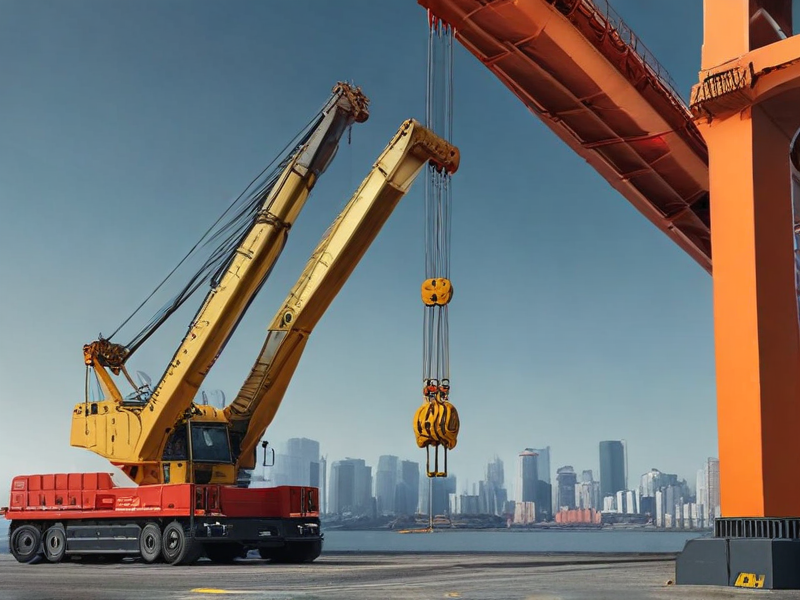An In-Depth Analysis of Manufacturing Expenses for crane hire cost per hour
Analyzing the manufacturing expenses for crane hire per hour requires a thorough understanding of various cost components: equipment, labor, maintenance, insurance, and overheads.
1. Equipment Costs:
These include the initial purchase or lease amount, depreciation, and financing fees. Larger cranes incur higher costs due to their complexity and capacity. Depreciation, calculated annually, significantly affects hourly hiring rates.
2. Labor Costs:
Highly skilled operators, riggers, and signal persons are essential. Wages, benefits, training, and overtime must be factored in. On average, labor can constitute a significant portion of the operational expenses, influencing the hourly cost.
3. Maintenance and Repairs:
Regular maintenance, including inspections, lubrication, and repairs, ensures safe and efficient operations. Unscheduled repairs add unpredictability to the costs. Budgeting for both routine and emergency maintenance is critical.
4. Insurance:
Crane operation involves high risks, necessitating comprehensive insurance coverage. Policies can include liability, property damage, and worker’s compensation. Premiums are determined by the crane’s value and usage frequency, directly impacting hiring rates.
5. Overheads:
Administrative expenses, storage, transportation of cranes to job sites, and permits form the overheads. Efficient logistics management reduces transportation and setup costs, optimizing the hire price.
6. Market Conditions:
Supply and demand dynamics affect crane hire rates. High demand periods or specialized crane requirements can elevate prices, while competition may drive them down.
7. Profit Margin:
Providers add a profit margin to cover risks and ensure business sustainability. This margin varies depending on market positioning, competition, and economic conditions.
In conclusion, estimating crane hire costs per hour is an interplay of equipment investment, labor, maintenance, insurance, overheads, and market factors. A detailed breakdown of each component helps in accurately determining competitive and sustainable hiring rates.

Understanding the Components that Contribute to the Price of crane hire cost per hour
The cost of crane hire per hour is influenced by several key factors, each contributing to the overall price. Understanding these components helps in making informed decisions and negotiating better rates. Here are the primary contributors:
1. Type and Size of Crane: Different projects require different types of cranes (e.g., mobile, tower, crawler), and their sizes vary greatly. Larger, more complex cranes with higher lifting capacity tend to cost more per hour due to their advanced capabilities and the specialized skills needed to operate them.
2. Duration of Hire: The length of time the crane is needed affects the rate. Typically, longer hire durations can result in a discounted hourly rate, whereas short-term or one-off hires might incur premium charges.
3. Operator Costs: Skilled operators are essential for safely managing crane operations. Their wages, which can vary based on experience and location, are included in the hire cost. Overtime rates also apply if the work extends beyond standard hours.
4. Transportation and Mobilization: Moving the crane to and from the job site can be a significant expense, especially for larger cranes or remote locations. These logistics costs are factored into the hourly hire rate or added as a separate charge.
5. Insurance and Permits: Insurance to cover potential damage or accidents, and permits for operating the crane, particularly in urban or highly-regulated areas, contribute to the overall cost. These are often mandatory and ensure compliance with local regulations.
6. Maintenance and Fuel Costs: The crane’s operational costs, including routine maintenance and fuel, are embedded in the hire rate. Regular upkeep ensures the crane remains in optimal working condition, which is crucial for safety and efficiency.
7. Market Conditions: Supply and demand dynamics in the crane hire industry influence prices. During peak construction seasons or in areas with high demand, prices may surge.
Understanding these components allows project managers and contractors to budget accurately and possibly find areas to optimize costs.
Comparing the Wholesale and Retail Prices of crane hire cost per hour in China
Sure, let’s look at the crane hire costs in China from both wholesale and retail perspectives. This comparison sheds light on the price differences and potential reasons for these variations.
Wholesale Prices:
Wholesale prices are typically lower because they involve bulk transactions or longer-term contracts. Construction companies, large-scale developers, or industrial firms usually engage in wholesale agreements. As of recent estimates, the wholesale hire cost for cranes in China typically ranges between $50 to $80 per hour. These lower rates are due to bulk leases, long-term contracts, and reduced per-hour charges owing to the volume of use.
Retail Prices:
Retail prices, conversely, are higher as they cater to individual or short-term rentals where demand fluctuation and administrative costs play a significant role. Small businesses, event organizers, or one-time users are common retail customers. The hourly retail hire cost for cranes in China is approximately between $90 to $150 per hour. These prices reflect the added overheads of retail transactions, including customer service, insurance, and the shorter duration of hire, which does not benefit from economies of scale.
Key Differences:
1. Volume and Duration: Wholesale deals benefit from longer durations and higher volumes, reducing the per-hour hire cost.
2. Operational Costs: Retail prices factor in higher administrative and operational costs per transaction.
3. Risk and Maintenance: Retail hires often incorporate higher risk and maintenance costs due to the diverse nature of short-term uses.
Conclusion:
In summary, wholesale crane hire prices in China are significantly lower due to long-term contracts and bulk usage, ranging from $50 to $80 per hour. Retail prices, encompassing additional overhead and risk factors, are higher, averaging $90 to $150 per hour. Businesses can thus achieve substantial savings by opting for wholesale agreements over retail ones.

Understanding Shipping and Logistics for crane hire cost per hour from China
Shipping and logistics for crane hire cost per hour from China involves several key components that require meticulous planning and coordination. Here’s a concise breakdown:
1. Crane Hire Costs: The per-hour cost of hiring a crane in China can vary based on the crane type (mobile, tower, etc.), capacity, and rental duration. Rates generally range between $100 to $500 per hour. For detailed quotes, contacting local crane rental companies is essential.
2. Shipping: The shipping costs depend on the crane’s size, weight, and destination. For international transport, sea freight is the most feasible option due to the crane’s large dimensions. Shipping costs typically encompass container fees, insurance, port handling fees, and customs duties.
3. Logistics: This encompasses several stages:
– Documentation: Essential for customs clearance includes invoices, packing lists, import/export licenses, and insurance documents.
– Loading and Transport: Cranes are usually disassembled for shipping. Loading requires specialized equipment and expertise to ensure safe and secure transport.
– Customs Clearance: Both exporting from China and importing into the destination country involve navigating customs regulations, which might incur additional costs and time.
– Delivery to Site: After arrival at the destination port, further logistics for transportation to the rental site must be arranged, including possibly reassembling the crane.
4. Insurance: Cargo insurance protects against potential damages during transit and is critical for high-value shipments like cranes.
5. Time Frame: Shipping from China to most destinations typically takes 3-8 weeks depending on the route and mode of transport.
In summary, the overall cost involves not just the hourly crane rental rate, but also significant shipping and logistical expenses. Partnering with experienced logistics providers and crane rental companies can streamline the process, ensuring efficiency and cost-effectiveness.
Potential Tariffs or Import Taxes on crane hire cost per hour Purchased from China
When considering the import of crane hire services from China, it’s crucial to examine the potential tariffs or import taxes that may be applicable. While “crane hire cost per hour” is a service rather than a physical product, international trade often involves equipment rentals, and the equipment itself may be subject to tariffs.
Tariffs and Import Duties:
1. Harmonized System Code: Determine the appropriate HS code for cranes. For example, HS code 8426.19.00 covers “Derricks; cranes designed for mounting on road vehicles.”
2. U.S. Tariffs: If importing into the U.S., tariffs can be checked via the U.S. International Trade Commission (USITC) DataWeb or the Harmonized Tariff Schedule (HTS). U.S. tariffs for cranes typically range from 0% to 10%.
3. Europe Tariffs: For EU countries, the European Union TARIC provides tariff rates. Rates can range from 0% to 4% based on the crane type.
4. Anti-Dumping Duties: Special duties may apply to prevent dumping. Check the Department of Commerce and International Trade Commission reports.
Import Taxes and VAT:
1. Value-Added Tax (VAT): In Europe, VAT rates can apply and vary by country (e.g., 20% in the UK, 19% in Germany). For the U.S., certain states may impose sales or use taxes.
2. Customs Fees: Additional fees could include import handling fees, customs clearance charges, and brokerage fees.
Action Steps:
1. Research and Consultation: Use official government resources or consult with trade specialists.
2. Documentation: Ensure complete and accurate documentation for import.
3. Cost Calculations: Factor in all potential tariffs, taxes, and fees to determinate the final hire cost.
Understanding these components will help in estimating the true cost and feasibility of importing crane hire services from China.

Impact of Market Demand and Competitive Environment on crane hire cost per hour
The cost per hour for crane hire is significantly influenced by market demand and the competitive environment. When market demand is high, typically due to increased construction activities or large-scale projects, crane hire rates tend to rise. This is a classic example of supply and demand dynamics where limited availability and higher demand allow rental companies to leverage higher prices. Conversely, during periods of low demand, perhaps influenced by economic downturns or reduced construction activities, crane hire costs generally decrease as companies compete for fewer clients.
The competitive environment also plays a crucial role. In markets with numerous crane hire companies, competition tends to drive prices down as firms vie for business. These companies may offer competitive rates, additional services, or flexible terms to attract customers, pushing the overall prices lower. In contrast, in markets where a few firms dominate, limited competition can keep prices elevated. These market leaders may have established reputations, larger fleets, and brand loyalty that allow them to command higher rates.
Additionally, regional variations in competition and demand can cause fluctuations in hire costs. Urban areas with more construction projects might see higher demand and more competition, leading to competitive pricing strategies. Meanwhile, rural areas with fewer projects may have less competition but also varying demand, affecting the cost structure differently.
Both factors—market demand and the competitive environment—are inherently linked. Changes in external economic conditions, regulatory landscapes, and even technological advancements in construction equipment can further modulate these variables, ultimately influencing crane hire costs in complex, interconnected ways. Therefore, stakeholders must continuously monitor these factors to make informed decisions on crane hire, balancing cost-efficiency with operational needs.
FAQ about crane hire cost per hour with Multiple Answers
Sure! Below is a concise FAQ about crane hire costs per hour:
Q: How much does it cost to hire a crane per hour?
A1: The cost of hiring a crane per hour can vary widely depending on the type, size, and capacity of the crane. On average, you can expect to pay between $100 to $500 per hour.
A2: For smaller cranes, like a mobile or truck-mounted crane, the rates might range from $100 to $200 per hour. Larger all-terrain or tower cranes can cost between $200 to $500 per hour.
Q: What factors influence the cost of crane hire?
A1: Several factors affect the cost, including the crane’s size and lifting capacity, the duration of the hire, the location of the job site, and any additional equipment or operators required.
A2: Complexity of the lift and the need for specialized equipment, such as rigging or counterweights, can also add to the costs.
Q: Are there any additional fees I should be aware of?
A1: Yes, additional fees can include transportation costs, setup or teardown charges, and overtime rates for operators if the job extends beyond normal working hours.
A2: Some companies may also charge for permits or any necessary road closures, especially in urban or high-traffic areas.
Q: Can I get a discount for long-term rental?
A1: Many crane hire companies offer discounts for long-term rentals or multi-day projects. It’s best to inquire directly with the rental service for specific rates and terms.
A2: Yes, negotiating a package deal for extended use can significantly reduce hourly rates. Be sure to discuss this with the provider.
Q: Do I need to pay for the crane operator separately?
A1: Typically, the cost to hire a crane includes the operator’s fees. However, it’s crucial to confirm this with the hiring company to avoid any surprises.
A2: While most hires are inclusive of the operator’s fee, if not included, hiring an operator separately could range from $50 to $150 per hour.
By understanding these cost factors, you can better budget for your crane hire needs. Always request a detailed quotation to ensure transparency in pricing.

